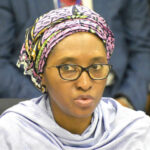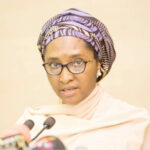The National Action on Sugar (NASR) has commended the President Muhammadu Buhari administration for introducing a tax on sugar-sweetened beverages.
The NASR is a health coalition advocating for policy measures to combat non-communicable diseases (NCDs) in Nigeria.
- World Diabetes Day: World Bank tasks FG on sugary drinks taxes
- 2022 budget: Coalition lauds FG’s ‘soft drinks’ tax hike
The Minister of Finance Zainab Shamsuna Ahmed had on Wednesday announced a tax
on sugar-sweetened beverages.
She stated this at the public presentation of the 2022 budget in Abuja.
An excise tax of N10 per litre will now be imposed on non-alcoholic, carbonated and
sweetened beverages.
The minister also explained that the tax policy was instituted to raise revenue for critical expenditure, including health-related expenditure.
Late last year, the coalition petitioned the finance minister in an open letter urging the
government to proceed with a proposed carbonated drinks tax.
The on Thursday in a statement said it considers the tax a protective measure for Nigeria’s poorest, a population that stands to benefit the most from a reduced consumption of sugary beverages.
The statement signed by Dr. Adamu Alhassan Umar, NASR member and President, Nigerian Cancer Society; and Omei Bongos-Ikwue coalition representative, also said that tax revenue can be used to curtail the rising burden of disease on the poor and on the nation’s healthcare system.
“The timely passage of the Finance Act and the 2022 Appropriation Act by
the National Assembly and the subsequent assent by the President, which gave legal backing to
the new tax policy for non-alcoholic, carbonated and sweetened beverages is a welcome
development to the National Action on Sugar Reduction.
“As advocates we will continue to advocate for proper utilization of the funds towards key preventive measures for non-communicable diseases such as type 2 diabetes, cancers and others,” Dr. Umar, said.
The coalition therefore commended the Federal Government for this significant step towards protecting the lives of Nigerians and safeguarding the country’s economy.
It stated that non-communicable diseases account for one in three deaths in Nigeria, presenting a significant cause of premature death and loss of economic productivity, hence the need to act appropriately.

 Join Daily Trust WhatsApp Community For Quick Access To News and Happenings Around You.
Join Daily Trust WhatsApp Community For Quick Access To News and Happenings Around You.

